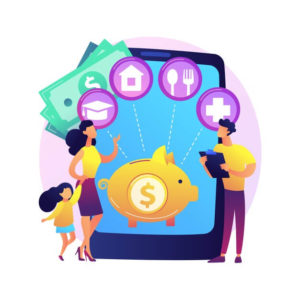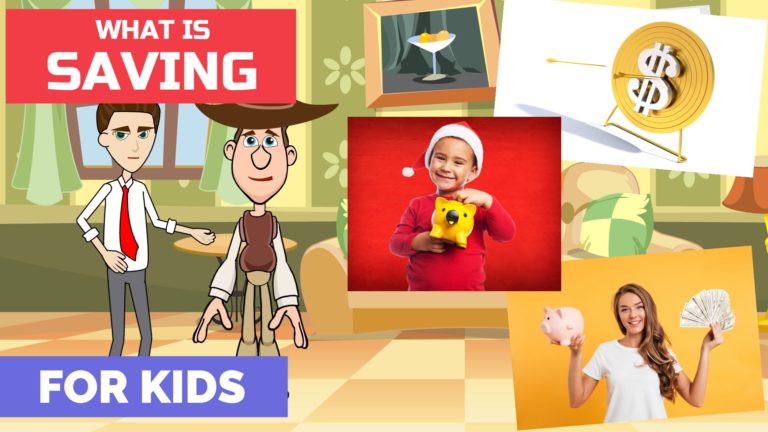Introduction to Saving: Financial Literacy for Kids and Teens
This video explains the concept of saving money in a simple, concise way for kids and beginners. It could be used by kids & teens to learn about saving, or used as a money & personal finance resource by parents and teachers as part of a Financial Literacy course or K-12 curriculum.
Suitable for students from grade levels:
- Kindergarten
- Elementary School
- Middle School
- High School
The topics covered are:
- What is saving
- How can you start saving
- Should you spend or save first
- Why is saving important
- How much money should you save

What is Saving?
Saving is when you take a portion of your earnings, and instead of spending it now, you park it away to use later. Your earnings could be from a job, freelancing, or a business. It could also be your allowance, or chore money.
The money that you park away for the future is your savings.
How can I start saving?
The easiest way is to simply set aside a portion of your income before spending on discretionary expenses.
But it’s much easier to save when you have a specific goal in mind – whether that’s a long term goal like college education or retirement, or a short term goal like taking a vacation or buying a bike. With a specific goal, you will be motivated, knowing you are saving for something that you really want. If you can’t think of a specific goal, you can save for a rainy day, or an emergency – like a health emergency or job loss.
Once you have a goal you want to save for, you can open a savings account at a bank and begin depositing money into the account.
Should I spend or save first?
You have to strike a balance between the money you spend, and the money you save, and this balance is different for everybody.
But as a general rule, after spending on essentials like rent, utilities etc., you should first save a portion of the remaining income and then spend on non-essentials.
Why is saving important?

Saving gives you peace of mind, teaches you to distinguish between needs and wants, fosters good money management habits, and most importantly, helps you achieve your goals faster.
For example, if you were saving to buy a gaming console, and happen to like some expensive shoes, you would be forced to weigh whether or not it’s worth getting the shoes and delay getting the gaming console.
The habit of saving helps you make smart money choices by automatically reducing unnecessary purchases.
.
How much money should I save?
The exact amount you should save varies from person to person, but as a general rule you should save at least 10% of your disposable income.
A good way to find out how much you can afford to save is by keeping a journal of all your expenses, and deciding which ones you are okay living without. Then, start cutting out some of these non-essential purchases, and instead save that money towards more meaningful goals.
Download Transcript: Ideal for Use by Teachers in their Lesson Plan to Teach Kids and Teens
Podcast: What is Saving?
Fun, informative and concise episodes by a 10-year old, breaking down complex financial concepts in a way that kids and beginners can understand. Episodes cover personal finance topics like saving, investing, banking, credit cards, insurance, real estate, mortgage, retirement planning, 401k, stocks, bonds, income tax, and more, and are in the form of a conversation between a cowboy (a finance novice) and his friend, a stock broker. Making finance your friend, only at Easy Peasy Finance.
A little bit about me: I have been fascinated with the world of personal finance since I was 6! I love to read personal finance books, and keep myself updated on the latest by reading various personal finance magazines. My friends often ask me questions about finance because they find it complex and intimidating. That’s what inspired me to start my YouTube channel called Easy Peasy Finance when I was 8, and this podcast 2 years later.
Everything you need to know about saving: What is Saving, Why is saving important, How much money should you save, How can you start saving, Should you spend or save first, and more.
Show notes and transcript at: https://www.easypeasyfinance.com/saving-for-kids-financial-literacy/



where is the example?!
Hi bOB,
Please refer to the example of gaming console vs expensive shoes under the question “Why is saving important?”